Highlighting first-time Oscar nominees including Maria Bakalova, Leslie Odom, Jr. and the late Chadwick Boseman
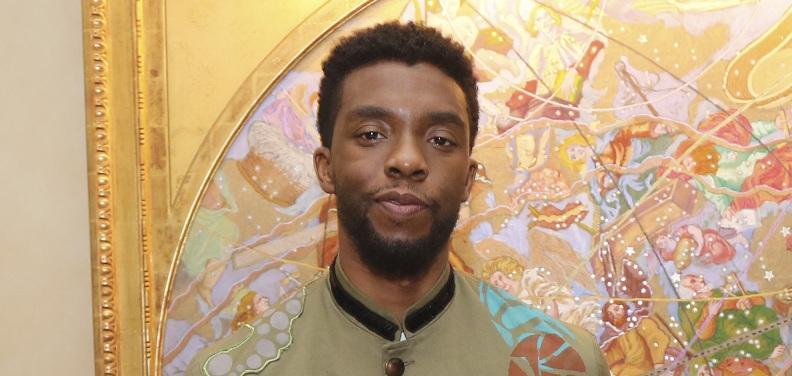
Los Angeles — Since this is an unusual year, the 93rd Academy Awards, which will be staged this year on April 25, will be held live for the first time at LA’s Union Station.
Only nominees, their guests and presenters will be in attendance while additional show elements will be taped live from Hollywood’s Dolby Theatre.
We are continuing to highlight more first time Oscar nominees and this week, we are featuring Leslie Odom, Jr., Lakeith Stanfield, Vanessa Kirby, Maria Bakalova and the late Chadwick Boseman.
New York-born Leslie Odom, Jr., 39, portrayed the legendary singer-songwriter Sam Cooke in the Regina King-helmed drama “One Night in Miami.”
Apart from being nominated for Best Supporting Actor, he is also nominated for Best Original Song as composer and performer of the film’s ending credits track, “Speak Now.”
Actor and musician Lakeith Stanfield, 29, from San Bernardino, California, played William “Bill” O’Neal, an FBI informant who infiltrates the Black Panther Party in the biographical drama film, “Judas and the Black Messiah,” which is directed by Shaka King. Stanfield was nominated for the Best Supporting Actor category.
The late Chadwick Boseman received a posthumous Oscar nomination for Best Actor for his role in his final film, the George C. Wolfe-helmed drama, “Ma Rainey’s Black Bottom,” as Levee Green. The film is dedicated to his memory. He was nominated in the Best Actor in a Leading Role category.
The lovely and talented English actress Vanessa Kirby, 32, was nominated for her work in "Pieces of a Woman." In it, she played Martha Weiss, a woman plunged into grief after losing her newborn during a home-birth labor. Kirby was nominated in the Best Actress category.
Bulgarian actress Maria Bakalova, 24, was nominated for Best Supporting Actress for her role as Borat’s daughter, Tutar Sagdiyev, in the mockumentary, “Borat Subsequent Moviefilm.”
Below are excerpts of previous conversations we've had with them, edited for purposes of clarity and length.
Vanessa Kirby
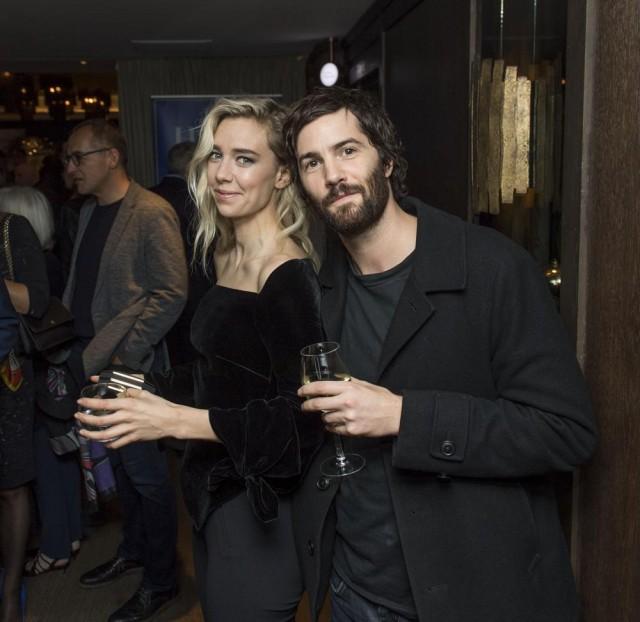
Could you please describe your upbringing and what have you learned from your very accomplished parents that still helps you today?
I felt really lucky actually. I didn't grow up in a family of actors or anyone that did the business at all, which I am quite appreciative of now in a way because I found I never knew how I would even do it professionally.
I am sure we've all felt that at some point, like how do I get into this thing that I love? My dad did love Shakespeare and so they took me to a lot of theatre and I really owe them for that. I saw so many plays and I remember when I was 11, I watched Corin and Vanessa Redgrave play brother and sister in “The Cherry Orchard” at the theatre and it was in that moment where I like looked over the balcony of the theatre and I remember being so moved.
It felt like I was there and I left the theatre with this tingly feeling all over that I think we all have from cinema sometimes, when you just go like, 'I feel different because of it' and whatever that magic was, I knew that I would love to get involved. So I have them to thank for all the theatre and all the films they showed me.
And what did you learn from your mom?
My mom’s an amazing reader so she'd read a load of books to me and she really cultivated imagination. So I was really that encouraged and she used to drive me to so many theatre classes and auditions where I was terrible. I did like so much learning in those early years of how everything worked and so they were so supportive especially because there are so many no’s. You get rejected so many times. So you have to get used to that and that is the strange part of the job but you have to try and carry on anyway.
Leslie Odom, Jr.
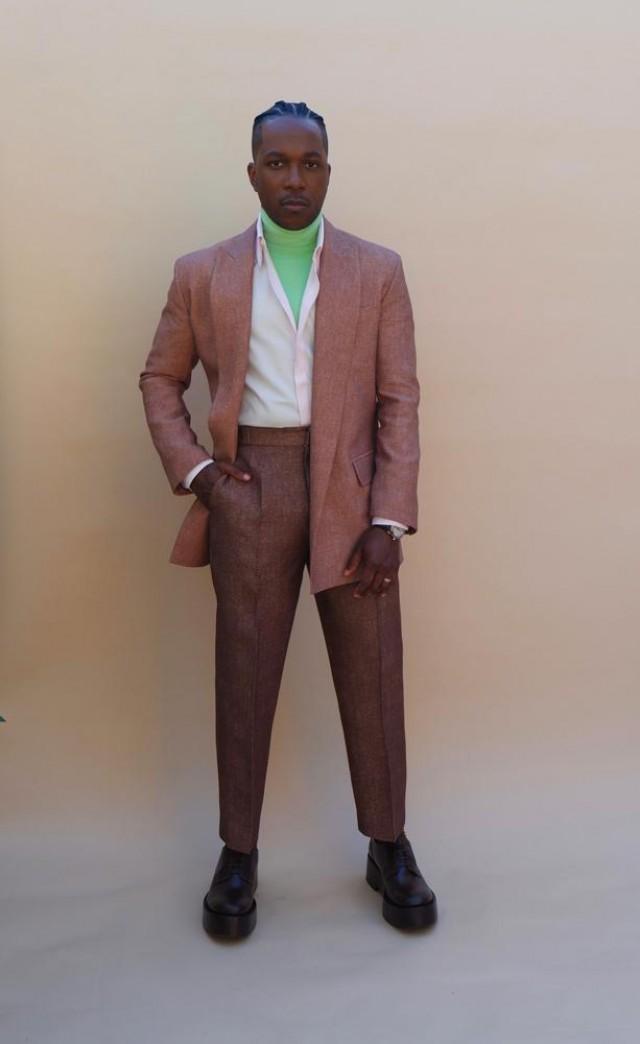
As an actor in New York, what are your conversations with your peers knowing that Broadway is dark now?
We'll have it again and we don't know how – we don't know when but the conversations with my peers are about lots of things but they're twofold.
The primary conversation that's happening is when ever we return, it's our responsibility to make sure we don't come back the same. We have to allow this experience, this profound experience to change us as creators, as makers, as audience members. So we're letting our hearts stay open and we're staying vulnerable of like letting the changes happen. It's a painful process and having those uncomfortable conversations but we have to come back different.
I'll say that and then I'll say that art is about creativity and so even in this time, I'm watching people like Bill Irwin or Michael Urie. Michael Urie did his one man show. It was brilliant off-Broadway. He found a way to do it online that I have chills thinking about it that was still emotional and effective. It's not the same as the live theatre.
This “Hamilton” film that Tommy's made so beautifully it's not the same as live theatre but it's something and it's something that can stand in the gap and so we're also talking about this resilient and creative group of people, what are we going to do in the meantime but we're going to come back. We're going to come back and it's our responsibility to make sure we don't come back the same.
Last holiday, I just discovered your Christmas album. I really loved it.
I wanted to make a beautiful thing. I wanted to make something that, not unlike “Hamilton” I don't think it's an accident the people that found their way into that room to make this show. We wanted to make something classic. We wanted to make something we hoped would last for all time, a statement that would last for all time and so whenever I'm making art, if I'm in control of it, I don't take time for granted.
So I made that Christmas album with the knowledge that I may never make another Christmas album again. I may never get that opportunity again so I want to make something that honors everything I've been given, honors the tradition of the holiday and then add something else to it. What layer can I add to it so I wanted it to speak to, I wanted to sound like all the sounds of what it was like to grow up a young Black man in Philadelphia, you but I wanted it – I wanted to honor the tradition of Nat King Cole and Bing Crosby, all of it. I wanted all of that to be in there so I'm so happy you hear. Thank you.
Lakeith Stanfield
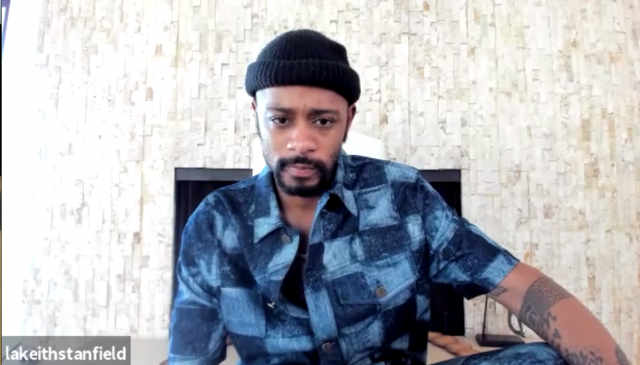
How much research did you do to portray your character, Bill O’Neal? And what kind of personal traits did you try to contribute to him onscreen?
I did a fair amount of research. Shaka King was very good at supplying me with materials, I had several books and I also had an interview segment of his “Eyes on the Prize” interview. I actually had to find the interview myself, no one could really get a hold of it, but after some digging, I was able to find it.
I got to learn his gesticulations and the way he moved his eyes and the way he moved and just incorporated that into what I was doing. And some of it still hasn’t left me yet actually, (laughs) but that’s the materials I had to work with.
I think the hardest part for me was trying to come to terms with my own moral standing and how I judged the character to be like a bad person. I had to get over my prejudgment in order to really dive in and find the humanity in the character. So that was the biggest challenge for me. That would be something that I would struggle with throughout the entirety of the film, which I guess to an extent might have added to the layers of the performance.
Do you know the character that you played committed suicide after the famous interviews? Do you think this was an accumulation of guilt?
Yes, the timing he ran into incoming traffic the day that his interview for Eyes On The Prize premiered, which to me indicates that he might have been feeling some type of guilt about what he did.
I'm sure in my deep research of William O'Neal, this isn't the only thing he has done. Prior to this and after this, he continued to work with the FBI and continued to get a lot of people hurt, killed, shot at and otherwise.
I think by the time, Eyes On The Prize came out which was in '91 a good significance of 20, 30 years after the incident with Fred Hampton, he tried to commit suicide several times. This time he just succeeded.
I imagine a large part of that was because of his concern with guilt knowing that he had done very terrible things and put people in terrible places for oftentimes selfish means. My hope is that his spirit finds some peace but I'm inclined to believe that, yeah, he probably did it because he was guilty.
Maria Bakalova
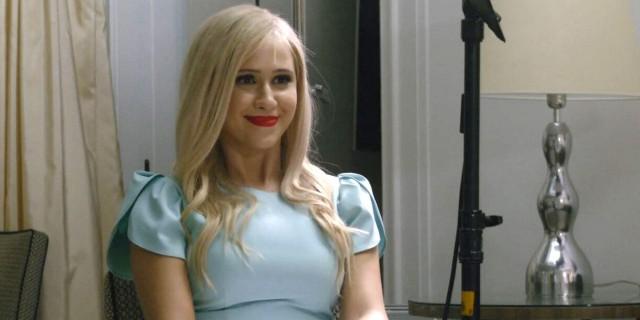
You also got a Golden Globe nomination. How did you find out about your Golden Globe nomination?
I was awake. I woke up because usually I've been watching them from Bulgaria from broadcast from a small city, and I've been excited my whole life. And I think I blacked out for a second when I heard my name, and my friend was right next to me, it was like, "Oh, you got a nomination." I was like, is it happening? I couldn't realize it.
Of course, it was the best day of my entire life, and it's really great because of the people from my region, how things are possible, and dreams can come true. So it was really, really the best time of my life.
Are you all about dressing up or dressing down?
Absolutely dressing up. It's my first-time nomination and first award show, and I will dress up. I also am shooting a movie in London, so the next day probably I'll have a day of shootings. But I will drink champagne because I really feel hugely honored to be nominated alongside all of these incredible people. It's incredible. So, I will celebrate it the way that it should be celebrated with a dress, and with champagne.
Chadwick Boseman
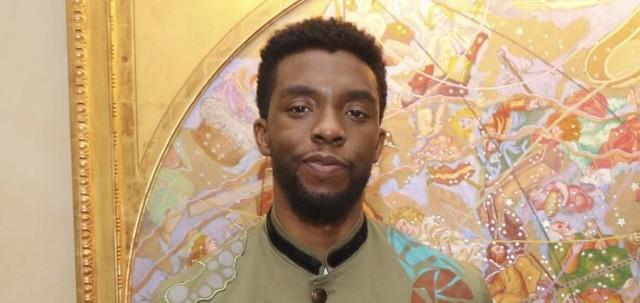
Do you remember the time in your life when you were first becoming aware of social injustice?
I would say my entire life I feel like I have sort of felt that sense, from my parents, from my brothers, just my family members. There’s always been a sense. I am from South Carolina, and so for my entire life, I have seen Confederate flags flying from trucks and Confederate flag license plates. I have seen my family members stopped by police for no reason, and I saw somebody try to run my mom off the road in a truck.
So it’s always been a thing of how do you deal with this situation? And do you respond directly and violently or do you respond peacefully, or do you respond spiritually or consciously? All of those things have always been a question.
I would say that it formally, probably happened when I went to Howard. There’s always going to be protests when you are on a college environment. So while there, there were a number of police shootings. There was a student who was killed by an off-duty cop while we were at Howard and we marched to the justice department. And that was probably the first time I ran into Al Sharpton in the midst of a protest. So I can’t really name a specific point because I think it has always been part of my life because injustice has always been present.
How thrilled were you when you got your own standalone movie, “Black Panther”?
I was ecstatic and I am still ecstatic about the fact that not just that I have my own standalone movie, because that is one thing. But I think what this movie is, what “Black Panther” is, socially, culturally, it’s an amazing thing to be a part of, so it’s beyond a dream come true to work on that. I didn’t need to read a script and I didn’t need to, when they actually called me about “Black Panther” they never said the words “Black Panther.” They said we have this character that we think you want to play, we heard you want to play this character, are you interested? And I said, if it’s who I think it is, (laughter) yes, definitely I want to do it.
So that is how excited I was about that. And yes, we trained very, very hard for the movie, probably harder than anything I have trained for. I always say that James Brown was the hardest and people don’t know, but those dance moves were so athletic and the strength that has to be in your entire body to be able to do that, and just the endurance of singing and not looking like you are tired doing it at the same time and looking like you are having a good time. I think this was just as hard as that. And all the factors that come into play make it hard, whether you are inside the suit or outside the suit. Yes, I got to kick a lot of ass, and it’s just an incredible experience.
Who is your personal hero in your life?
To this day, I just look at my mom. She is calm under pressure, super calm under pressure, she was a nurse. So there would be times where I would go to her office after school when I was a little boy and I would see someone go into duress and see them rushed to the hospital and they would have me often in the lunchroom or whatever, but I would still see how calm she was in those situations. And I would see how calm, we have a big family, how calm she would be when family members were under duress. She has always shown like this is what it’s like for you to act in your particular skill set when there is pressure.
And I think my father’s heart is just really, really big and it’s bigger than most men. And so his heart is what I aspire to and what I love. So as many famous people that I encounter and as many historical figures that I have played, there’s nobody that has that attribute or those attributes that I see in them. — LA, GMA News



